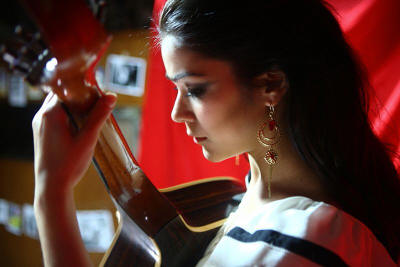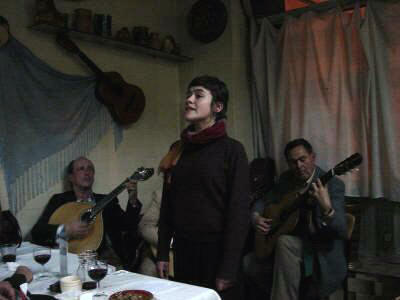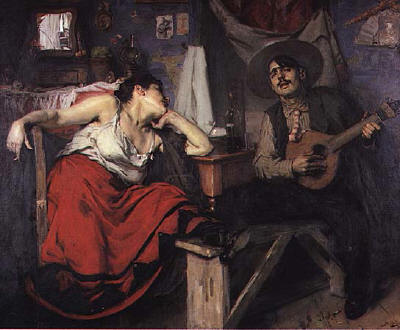
The unique "Fado"Yes, it's true! Lisbon has its own musical style - the Fado. And it is beautiful to ear and sing (if you dare  The style is back in fashion and can be heard in a growing range of places. You can find it in restaurants, tascas (taverns) and even on the 28 Tram (during the month of June). It's quite fair to say that until you listen to this music, you have not known the real Lisbon. A new dimension of feelingsSo, what can you experience?Well, when you ear this music, you can experience the melancholy, the saudade and the sadness blended with joy and confidence. The person who sings the fado, called fadista, carries you into a new dimension of feelings. Sometimes to emotions that you didn't even know were there. Also, the Portuguese guitar player, plays some wonderful music with his 12-string guitar, arranged in pairs. Believe me, even if nobody was singing, it would be worth it to ear it . Do you want a taste of it? Ok, listen to Carlos Paredes, one of the best Portuguese guitar players: When someone is about to sing, everybody keeps quiet. There's a Portuguese expression that goes like this: "Silêncio que se vai cantar o fado!" - Silence because the fado is about to be sung. Different Styles of FadoThere are four main types or styles:The Lisbon Style The most popular and traditional style of all can be found in the more traditional fado houses throughout the city. The Coimbra Style Exclusively sung by men, it's closely linked with the Coimbra University traditions. Talk about student love, their courses and teachers, the city and the bohemia. The Vadio Style Unlike the other two styles above that are usually sung by fadistas who know how to sing it, this style can be sung by everyone who dares (even if he is a little, how do you say, out of tone...) The Desgarrada This is the funniest style of them all. Two (or more) singers challenge each other to a kind of conversation in form of a song. They make remarks and jokes about each other to entertain the public and win the desgarrada. How is it performed?It is usually singed by a single man or woman, called fadista.This fadista is traditionally accompanied by a Portuguese guitar player and a viola (classic guitar) player.  This is actually changing, as some fadistas are beginning to be accompanied by a string quartet and even an orchestra. What do they sing about?Many times, the lyrics talk about betrayal, jealousy, disappointment, bullfights and the difficulties of life (like poverty, for example).The most accurate word to describe this style is saudade. This simple word, with no direct correspondence in any other language, means something like the feeling of loss and missing someone you deeply love. How did it start?There is no consensus about the origin of this music style.Some defend that it was brought from Brazil in the first half of the 19th century. The first reference found (1883), even talked about a sensual dance performed along with the music. Some related it with the Brazilian Samba. Others defend that it was started in Lisbon by the Moors, due to some similarities with North Africa singing styles. Most of them agree that it was influenced by the Troubadour tradition of medieval Provence. For centuries, this music was associated with the working-class neighbourhood (bairros) where it was performed in the local taverns (tabernas or tascas).  The main bairros were Alfama and Mouraria, were the legendary fadista Maria Severa Onofriana - "A Severa" was born. Although she died at the age of 26, she became an authentic myth. Her life was portrayed in the movies and, of course, in fados. Later, in the 20th century, some famous poets started to write lyrics especifically to this kind of music and the intellectuals also started to appreciate it more. With the help of the gramophone, the radio and later the television, this became a truly national song. Also, the Salazar regime treated it has a fundamental national identity element. To the regime there were three essential Fs to Portuguese people: Fado, Fátima and Futebol (football or soccer). The themes were largely influenced by the regime that censured any attempt of political criticism. Top of Page |

